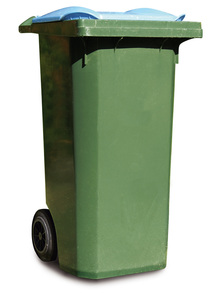
Some would say complaints are an unavoidable part of doing business. But in a world promoting the ‘Voice of the Customer’, there is rarely any better feedback mechanism direct from the customer than a complaint!
Considered from this perspective, complaints can be a rich source of information providing a fast track to improvement and a fantastic reputation.
The following post shows how complaints can be used to drive improvements.
When managing a Directorate of 2,500 employees, SSD’s MD (Dave Gaster) reduced ‘All complaints’ by 85% in only six months. He did this while maintaining and then improving service levels against all key measures. No external consultants were used and the solutions involved were not rocket science. Results were delivered by getting people to understand the issues and introducing simple ways to address them.
As with all large organisations, there was a complex and interdependent structure, with many departments, divisions, teams and supporting services all intricately woven together via Service Level Agreements (SLA’s) and a significant element of ‘custom and practice’ dictating performance and attitude.
A simple Pareto analysis of complaints showed that over 80% of complaints could be attributed to the fly-tipping of waste.
Once identified, Dave encouraged key stakeholders to analyse the issues and identify how they were being handled.
The most surprising statistic of all was how long it took from first report to resolution, the second surprise was how many times the same complaint was reported; i.e. how often the issue was highlighted, but was not resolved or even acted upon.
Having gathered significant Data and translated it into meaningful information, identifying a multitude of improvement opportunities, Dave ran a cross functional workshop to discuss those opportunities and identify why they were not being acted upon.
It turned out in the first session that 85% of the problem was due to the design of the systems and the misinterpretation of terms (language) between departments. For example: The definitions of ‘Fly-tip’ were not consistent between departments, seeing people assess the same issue in vastly different ways. The same ‘interpretation’ issues surrounded many of the SLA’s between divisions.
The team gathered more information, took more than 20 photos, then invited two more divisions (GIS and Call Centre) to a second workshop.
We ran a simple exercise in this workshop which proved to be incredibly powerful. We asked everyone present to place a ‘Post-it’ on each picture and state which category of waste it was in their opinion. The options included such descriptions as fly-tip, side waste, landlord materials etc. etc.
We uncovered the fact that a single picture could be allocated up to six different categories reflecting the multiple opinions held across the different divisions and between team members in the same division.
What this looked like in practice was Team A being sent to collect what they determined to be Team C materials. Once on site, Team A would reject the work, and Team C would be sent instead, causing a delay in the process of collecting in response to a complaint.
While confusion reigned due to differing opinions, the waste would often be added to by those dumping rubbish. Other members of the public would report the issue again. Team C would arrive and decide Team E ought to go…etc.
Our solution? We gave the call centre a ‘best questioning process’ that we developed with them allowing them to clearly identify the waste during receipt of the initial complaint. We also removed the restrictions on waste ‘type’ the teams were allowed to collect. From that point forward, whichever team arrived on the scene, would collected the required enforcement information and then collect the material (unless it was hazardous).
The outcomes? Increased enforcement capacity, reduced volumes of fly-tipping, reduced weight of fly-tipping, and the number of these complaints reduced by around 85% in a few weeks.
Councillors and MP’s had multiple questions during this development phase, which we were enabled to respond to faster with more informed answers. In short shrift everyone (down to 4th tier) quickly became empowered to answer all questions, referring only those issues considered politically sensitive. The officers involved in the process felt more trusted, becoming more trust-worthy in the eyes of the consumer. This was reflected in the data, with the statistics showing average speed of replies following complaints reduce from 12 working days to 1.6 working days.
The affects of addressing the root cause of issues started to lead to a reduction in all questions including FOI’s.
A far more detailed ‘white paper’ on Rethinking Waste Management is now available, please request this from [email protected] or download it from our website at www.supportservicesdirect.co.uk
NOTE Visualising Transformation is a way of working that maximises the information to all people within the system, so as to be useful for their purposes. Enabling people to see what is happening and have knowledge as to how to use that information is at the heart of Lean and Systems Thinking.
VT acknowledges that everything is connected, no one idea is unique or independent of others, this is one of many planned ‘blogs’ to be released over the next couple of years. We would love to hear your thoughts, or to deal with requests via [email protected]

 RSS Feed
RSS Feed